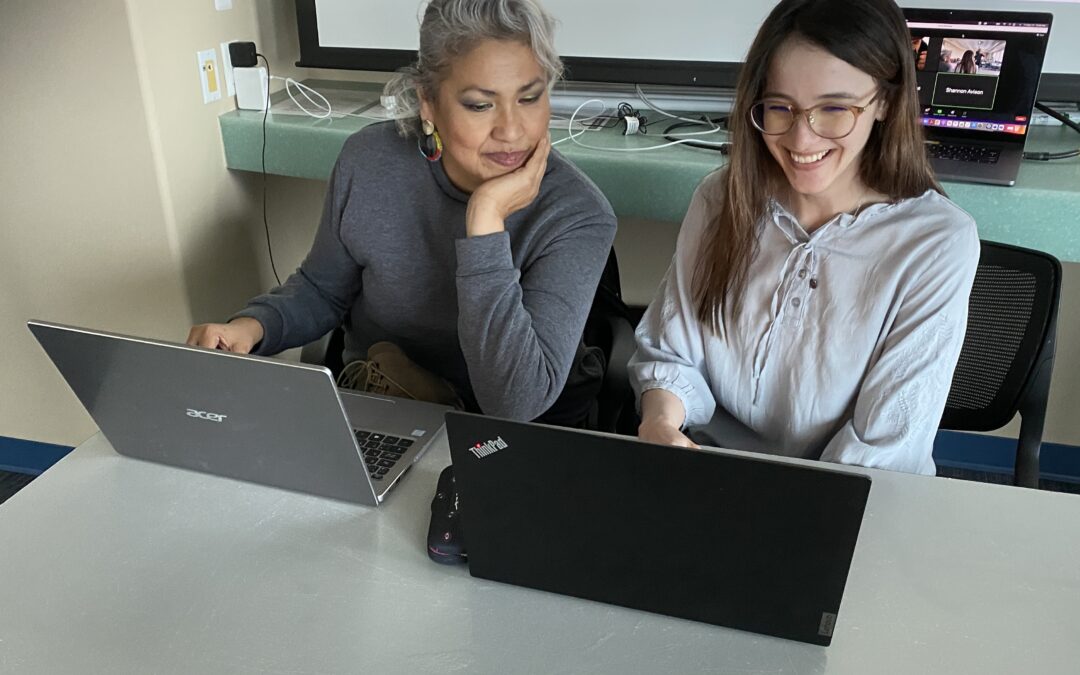(Photo: Eagle Feather News managing editor Kerry Benjoe with student Dallas Montpetit at the INCA Summer Institute 2022. Submitted by Shannon Avison.)
In an era of shrinking newsrooms, journalist layoffs and closing publications, the First Nations University of Canada is attempting to grow Indigenous journalism.
Beginning this September, the University will launch its four-year multimedia Bachelor or Arts degree program in Indigenous journalism and communications.
The first of its kind in North America, the program will blend multimedia training with Indigenous languages and issues.
“It will focus on building up community-based communications in media and on revitalizing local news. It will lead research and innovation in the development of new media,” said First Nations University President Dr. Jacqueline Ottmann. “No matter the platform, it is vital that our stories are told from our own perspectives, our own languages and our own voices.”
In December, the Canadian Broadcasting Corporation announced layoffs of 600 staff, and leave 200 vacancies unfilled as it slashes ten percent of its workforce to balance a $125 million budget shortfall. In February Bell Media said it would cut 4800 jobs and sell 45 radio stations as it struggles financially. Approximately four-weeks ago, Eagle Feather News said it was going on hiatus, citing financial pressures. Yet the University of Regina, after taking a one-year break, said in February it will launch a revitalized journalism and communications program for the fall of 2024.
“This is an interesting time to be launching a university degree in journalism and communications. There is a lot of uncertainty about how the media landscape is changing and where it will land,” explained Shannon Avison, associate professor of Indigenous Communication Arts (INCA).
A market study conducted by INCA found 80 percent of media managers plan to increase Indigenous-focused hiring in the next five years. “Having a degree will equip students with the academic credentials and the core competencies needed for these careers,” said Avison.
Extra funding to support the program, including $121,000 annually for five years from the Mastercard Foundation, $100,000 annually from the Inspirit Foundation over three years, and an anticipated $10,000 in internship support during the program’s inaugural year from J-Schools Canada/Écoles-J Canada and the Google News Initiative.
